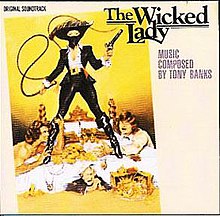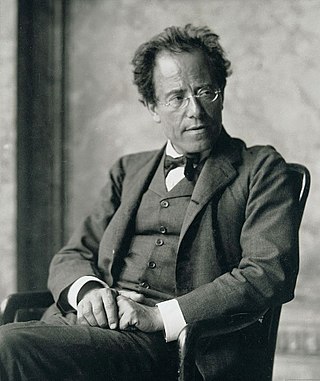
The Symphony No. 6 in A minor by Gustav Mahler is a symphony in four movements, composed in 1903 and 1904, with revisions from 1906. It is sometimes nicknamed the Tragic ("Tragische"), though the origin of the name is unclear.

Anthony George Banks is an English musician primarily known as the keyboardist and founding member of the rock band Genesis. Banks is also a prolific solo artist, releasing six solo studio albums that range through progressive rock, pop, and classical music.

The Symphony No. 6 in F major, Op. 68, also known as the Pastoral Symphony, is a symphony composed by Ludwig van Beethoven and completed in 1808. One of Beethoven's few works containing explicitly programmatic content, the symphony was first performed alongside his fifth symphony in the Theater an der Wien on 22 December 1808 in a four-hour concert.
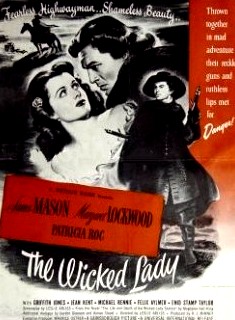
The Wicked Lady is a 1945 British costume drama film directed by Leslie Arliss and starring Margaret Lockwood in the title role as a nobleman's wife who becomes a highwaywoman for the excitement. It had one of the largest audiences for a film of its period, with an estimated British attendance of 18.4 million seeing it in cinemas, according to a 2004 ranking of the most popular sound films in Britain. In the list, compiled by the British Film Institute for Channel 4, it was placed ninth overall, and was the second-most successful British film, behind only Spring in Park Lane (1948).
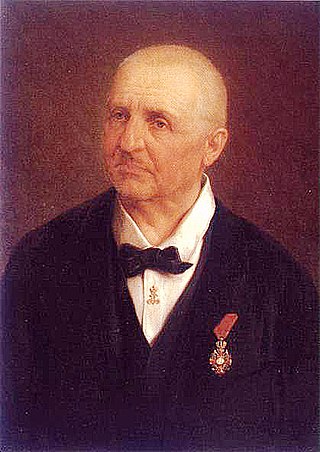
Anton Bruckner's Symphony No. 5 in B-flat major WAB 105, was written in 1875–1876, with minor changes over the next two years. It came at a time of trouble and disillusion for the composer: a lawsuit, from which he was exonerated, and a reduction in salary. Dedicated to Karl von Stremayr, education minister in the Austro-Hungarian Empire, the symphony has at times been nicknamed the "Tragic", the "Church of Faith" or the "Pizzicato"; Bruckner himself referred to it as the "Fantastic" without applying this or any other name formally.

Franz Schubert's Symphony No. 8 in B minor, D. 759, commonly known as the Unfinished Symphony, is a musical composition that Schubert started in 1822 but left with only two movements—though he lived for another six years. A scherzo, nearly completed in piano score but with only two pages orchestrated, also survives.
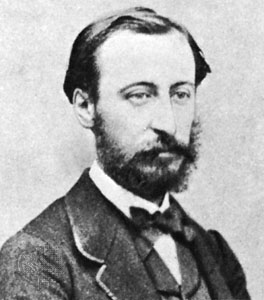
The Piano Concerto No. 2 in G minor, Op. 22 by Camille Saint-Saëns was composed in 1868 and is probably Saint-Saëns' most popular piano concerto. It was dedicated to Madame A. de Villers. At the première on 13 May the composer was the soloist and Anton Rubinstein conducted the orchestra. Saint-Saëns wrote the concerto in three weeks and had very little time to prepare for the première; consequently, the piece was not initially successful. The capricious changes in style provoked Zygmunt Stojowski to quip that it "begins with Bach and ends with Offenbach."

The Piano Concerto No. 4 in C minor, Op. 44 was composed by Camille Saint-Saëns in 1875. It was premièred on October 31, 1875, at the Théâtre du Châtelet of Paris, with the composer as the soloist. The concerto is dedicated to Anton Door, a professor of piano at the Vienna Conservatory.
"Smile" is a song based on the theme song used in the soundtrack for Charlie Chaplin's 1936 film Modern Times.

The Symphony No. 2 in E minor, Op. 27, is a four-movement composition for orchestra written from October 1906 to April 1907 by the Russian composer Sergei Rachmaninoff. The premiere was performed at the Mariinsky Theatre in Saint Petersburg on 26 January 1908, with the composer conducting. Its duration is approximately 60 minutes when performed uncut; cut performances can be as short as 35 minutes. The score is dedicated to Sergei Taneyev, a Russian composer, teacher, theorist, author, and pupil of Pyotr Ilyich Tchaikovsky. The piece remains one of the composer's most popular and best known compositions.
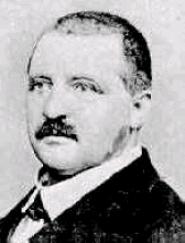
Anton Bruckner's Symphony No. 2 in C minor, sometimes known as the "Symphony of Pauses", was completed in 1872. It was actually the fourth symphony composed by Bruckner, after the Symphony in F minor (1863), the Symphony No. 1 in C minor (1866), and the Symphony in D minor (1869).

The Tokyo Tapes is a live and studio album by English guitarist Steve Hackett, released in April 1998 by Camino Records. It documents two concerts performed by a supergroup line-up of Hackett, John Wetton, Chester Thompson, Ian McDonald and Julian Colbeck, in Tokyo, Japan in December 1996. The album includes two studio tracks recorded by Hackett. In 2001, a DVD of the concerts was released, with the same title.
Ralph Vaughan Williams composed his Symphony in E minor, published as Symphony No. 6, in 1944–47, during and immediately after World War II and revised in 1950. Dedicated to Michael Mullinar, it was first performed, in its original version, by Sir Adrian Boult and the BBC Symphony Orchestra on 21 April 1948. Within a year it had received some 100 performances, including the U.S. premiere by the Boston Symphony Orchestra under Serge Koussevitzky on 7 August 1948. Leopold Stokowski gave the first New York performances the following January with the New York Philharmonic and immediately recorded it, declaring that "this is music that will take its place with the greatest creations of the masters." However, Vaughan Williams, very nervous about this symphony, threatened several times to tear up the draft. At the same time, his programme note for the first performance took a defiantly flippant tone.
Benjamin-Gunnar Cohrs was a German conductor, music scholar, and publicist on music.

Alien: Original Motion Picture Score came out in 1979 and achieved critical acclaim, being released commercially in multiple forms during the following decades. The iconic, avant-garde score to the film Alien was composed by Jerry Goldsmith and is considered by some to be one of his best, most visceral scores. Rather than focusing on themes, Goldsmith creates a bleak and dissonant soundscape that fits the film's dark and intense atmosphere, with only a few "romantic" cues.

The Wicked Lady is a 1983 British-American period drama directed by Michael Winner and starring Faye Dunaway, Alan Bates, John Gielgud, Denholm Elliott, and Hugh Millais. It was screened out of competition at the 1983 Cannes Film Festival. It is a remake of the 1945 film of the same name, which was one of the popular series of Gainsborough melodramas.

The soundtrack for the 1968 film Romeo and Juliet was composed and conducted by Nino Rota. It was originally released as an LP, containing nine entries, most notably the song "What Is a Youth", composed by Nino Rota, written by Eugene Walter and performed by Glen Weston. The music score won a Silver Ribbon award of the Italian National Syndicate of Film Journalists in 1968 and was nominated for two other awards.
David Nadien was an American virtuoso violinist and violin teacher. He was the concertmaster of the New York Philharmonic from 1966 to 1970. His playing style, characterized by fast vibrato, audible shifting noises, and superb bow control, has been compared to that of Jascha Heifetz.

A Chord Too Far is a box set from the English keyboardist Tony Banks, released on 31 July 2015 on Cherry Red Records. The set includes tracks from each album from his solo career, spanning from 1979 to 2012.
The Piano Concerto No. 2 in D minor, Op. 23 by Edward MacDowell was completed in late 1885. Although some obvious similarities with Edvard Grieg's, Camille Saint-Saëns's and Franz Liszt's concertos have often been stated, MacDowell’s composition proves to be quite original, at least compared to his First Concerto. It was the first major piano concerto written by an American. It was also the only large-scale composition by MacDowell to remain in standard repertoire.
